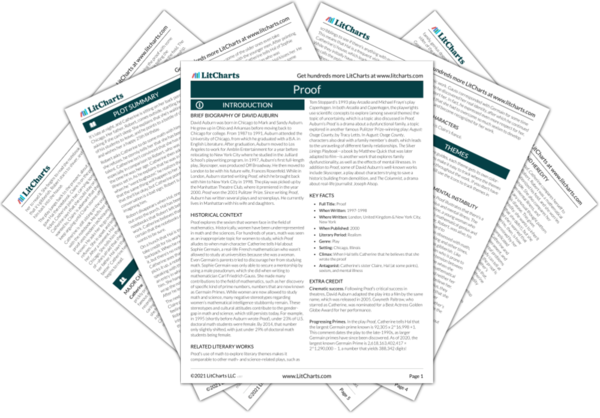Catherine’s suspicions appear to be valid after all—Hal really
was trying to steal one of Robert’s notebooks. At this point, it appears that her perception was correct, a fact that redeems her credibility for the audience. She seems less unstable, and more astute. Hal, meanwhile, totally breaks her trust by lying about not taking a book from Robert’s office. In response, Catherine calls the police, which shows how damaging doubt is for relationships; now that she knows she cannot trust him, Catherine has no interest in maintaining so much as a friendship with him.
